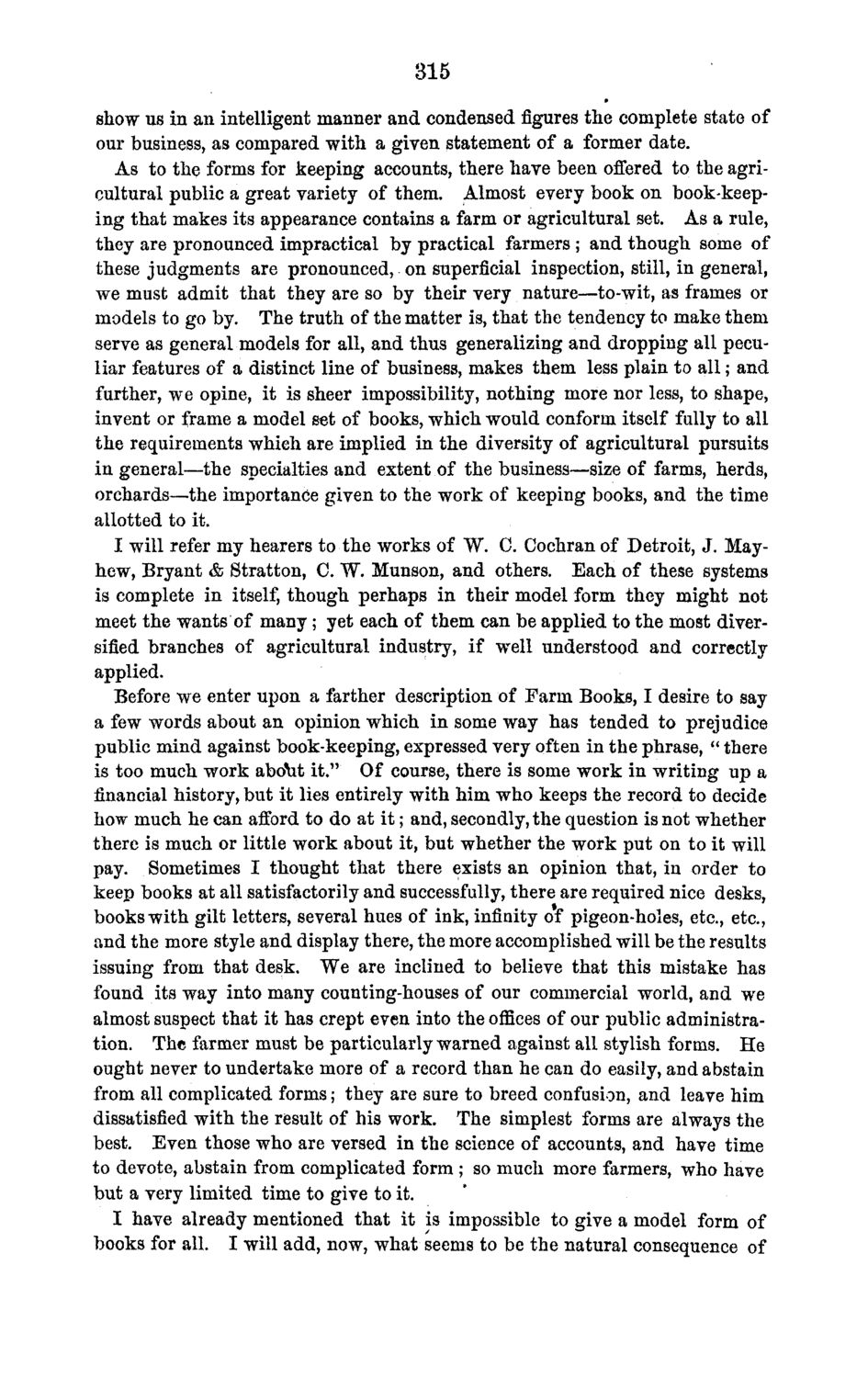| |
| |
Caption: Board of Trustees Minutes - 1870
This is a reduced-resolution page image for fast online browsing.

EXTRACTED TEXT FROM PAGE:
315 show us in an intelligent manner and condensed figures the complete state of our business, as compared with a given statement of a former date. As to the forms for keeping accounts, there have been offered to the agricultural public a great variety of them. Almost every book on book-keeping that makes its appearance contains a farm or agricultural set. As a rule, they are pronounced impractical by practical farmers; and though some of these judgments are pronounced, on superficial inspection, still, in general, we must admit that they are so by their very nature—to-wit, as frames or models to go by. The truth of the matter is, that the tendency to make them serve as general models for all, and thus generalizing and dropping all peculiar features of a distinct line of business, makes them less plain to all; and further, we opine, it is sheer impossibility, nothing more nor less, to shape, invent or frame a model set of books, which would conform itself fully to all the requirements which are implied in the diversity of agricultural pursuits in general—the specialties and extent of the business—size of farms, herds, orchards—the importance given to the work of keeping books, and the time allotted to it. I will refer my hearers to the works of W. C. Cochran of Detroit, J. Mayhew, Bryant & Stratton, C. W. Munson, and others. Each of these systems is complete in itself, though perhaps in their model form they might not meet the wants of many; yet each of them can be applied to the most diversified branches of agricultural industry, if well understood and correctly applied. Before we enter upon a farther description of Farm Books, I desire to say a few words about an opinion which in some way has tended to prejudice public mind against book-keeping, expressed very often in the phrase, " there is too much work abctat it." Of course, there is some work in writing up a financial history, but it lies entirely with him who keeps the record to decide how much he can afford to do at it; and, secondly, the question is not whether there is much or little work about it, but whether the work put on to it will pay. Sometimes I thought that there exists an opinion that, in order to keep books at all satisfactorily and successfully, there are required nice desks, books with gilt letters, several hues of ink, infinity of pigeon-holes, etc., etc., and the more style and display there, the more accomplished will be the results issuing from that desk. We are inclined to believe that this mistake has found its way into many counting-houses of our commercial world, and we almost suspect that it has crept even into the offices of our public administration. The farmer must be particularly warned against all stylish forms. He ought never to undertake more of a record than he can do easily, and abstain from all complicated forms; they are sure to breed confusion, and leave him dissatisfied with the result of his work. The simplest forms are always the best. Even those who are versed in the science of accounts, and have time to devote, abstain from complicated form; so much more farmers, who have but a very limited time to give to it. I have already mentioned that it is impossible to give a model form of books for all. I will add, now, what seems to be the natural consequence of
| |